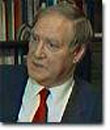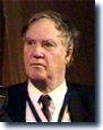
Захидов С.Т. — доктор биологических наук, профессор, ведущий научный сотрудник кафедры эмбриологии биологического факультета Московского Государственного Университета им. М.В.Ломоносова.
В статье речь идет о явлении мутаций — аналогах термодинамических флуктуаций и их роли в процессах самоорганизации и развитии наследственной и биологической материй. Рассмотрены некоторые положения рапопортовской генетической теории в контексте с современными синергетическими концепциями. Раз возникнув как самостоятельный раздел естествознания, генетика — экспериментальная наука о дискретной наследственности и изменчивости — динамично развивалась, не зная периодов упадка и застоя. В течение последних ста лет исследования в области генетики по значимости и интенсивности не уступали исследованиям в области квантовой физики. Овладение энергией гена — задача грандиозная, сопоставимая с решением проблемы управляемого термоядерного синтеза.




